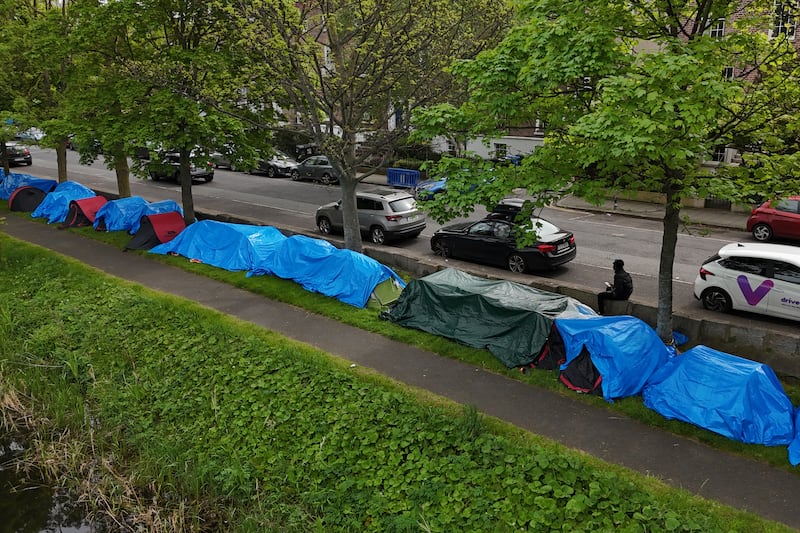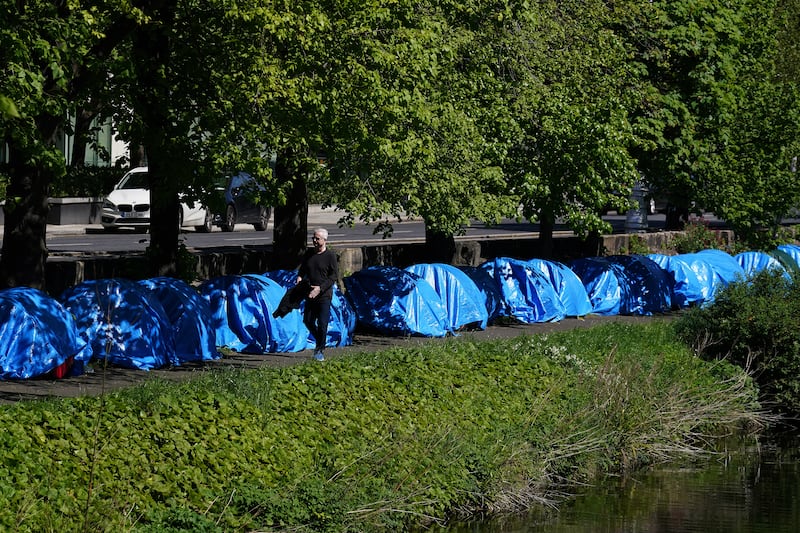ASYSLUM seekers are organising as part of a campaign that includes calls for the lifting of a work ban so they can contribute more to wider society.
Access to health services, education and conditions in hotels where most of the estimated 1,500 asylum seekers in Northern Ireland are currently housed were also all on the agenda at the landmark gathering on Wednesday.
But the meeting at the Redeemer Central church in Belfast city centre also heard how those sent to the north after arriving in the UK seeking international protection are volunteering, training and trying to contribute with the support of non-government organisations and businesses.
"We are not waiting for the authorities," said Tawassul Mohammed, an activist involving in organising the "Kind Economy" campaign.
It began with meetings involving some 150 asylum seekers in September and October. Participation and the Practice of Rights (PPR) is the lead local organiser.
The meeting on Wednesday was organised to hear from public authorities and was attended by Stormont, health, education and other officials, along with political representatives from Alliance, SDLP, the Greens and Sinn Féin.
Empty chairs were left for absent representatives from the British Home Office, Migrant Help and Mears, the private company contracted to provide housing and support for asylum seekers.
Christiana Olujomoye, from Nigeria, told the approximately 100-strong meeting that barring asylum seekers from working or deciding to live in the wider community is a waste of talent and money.
Citing the differences in different countries, Ms Okujomoye said asylum seekers are allowed to work after approximately nine months in the US but the ban remains in the UK. She spoke of knowing one person going back and forth with the Home Office for six or seven years.
"During Covid, there was so much pressure on the health services but a massive number of professionals in the asylum system, many of them health care practitioners," she said, adding she was an accountant by profession who worked for 18 years in business management.
The Home Office encourages asylum seekers to volunteer but the policy position and intention is to "ensure a clear distinction between economic migration and asylum that discourages those who do not need protection from claiming asylum to benefit from economic opportunities they would not otherwise be eligible for".
Asylum seekers can apply to work if in the country "through no fault of their own" for more than12 months
But Ms Olujomoye argued the policy has real word consequences for individuals who are "human beings". Some are drawn in to delivering drugs or prostitution while others work in the black economy for as little as £4 an hour as the hotel dwellers receive £8 a week, those living in the wider community are given £40 for essential items.
They also suffer health problems, including mental, as many escaping trauma in their homeland spent hours doing nothing and often spend this time within the walls of where they are living
“We can grow this economy together. Why waste money on hotel accommodation when they can work, earn money and pay taxes,” she said. PPR said it costs £6.8m a day to house 45,000 asylum seekers in hotels.
Following the meetings last year, activists drew up a list detailing the issues facing asylum seekers that local agencies and government could help with. They included those linked to education, health and how complaints are handled.
Some progress was reported, including access to GPs and education at primary level though less so at secondary. Work is continuing across on many others.
But participants heard a core problem is that the asylum system is a reserved area handled by London while the provision of services is devolved. There is a disconnect as agencies and departments do not have full information on just who has been moved by the Home Office to the region, participants heard.
While The Executive Office (TEO) does have a data sharing arrangement with the Home Office, this involves raw numbers and no detailed information.
"Public authorities do not know how many children are here," said Deirdre McAliskey, of the Children's Law Centre, adding there is a gap between information held locally and numbers coming from London.
Ms McAliskey claimed the gap suggests there could be over 500 children "missing", entirely off the radar of any local agency.








